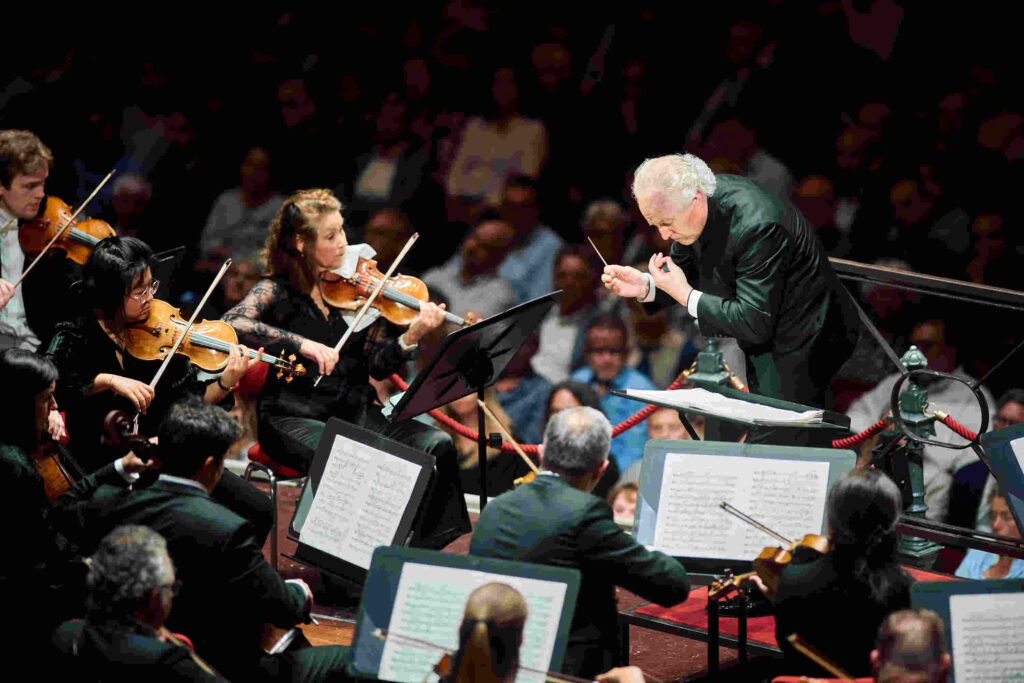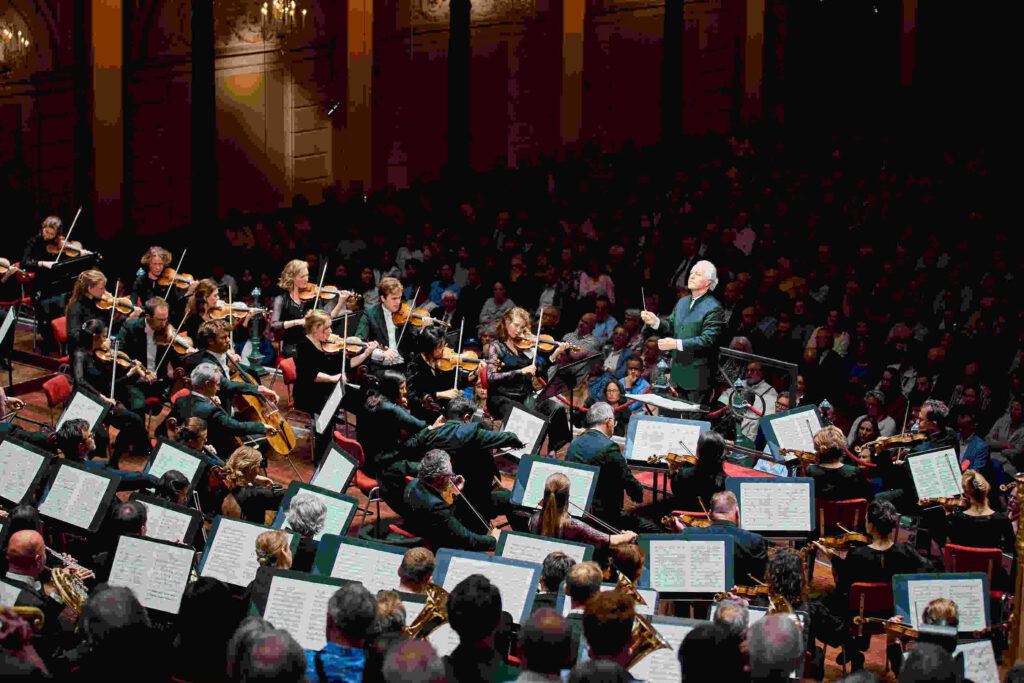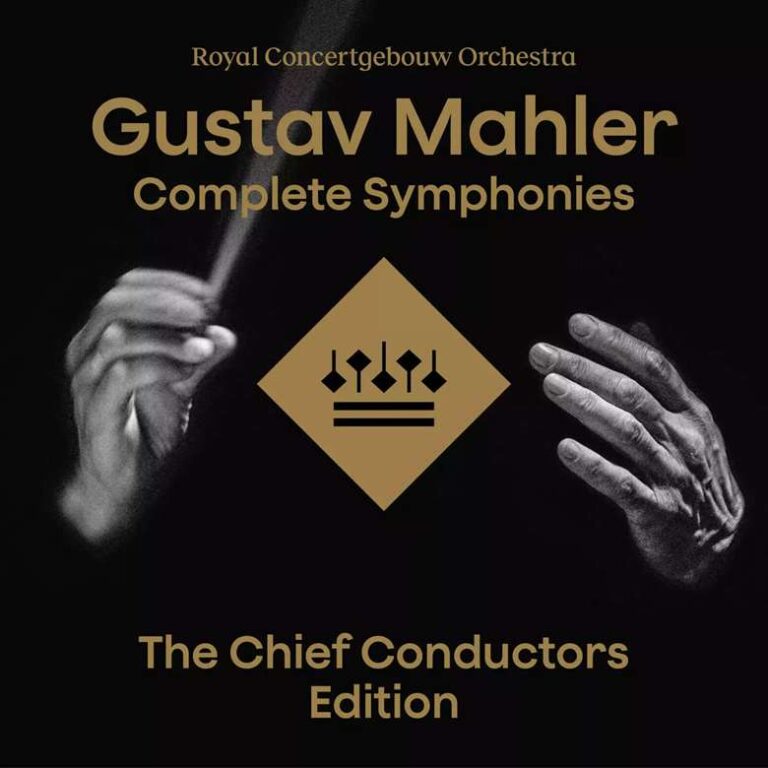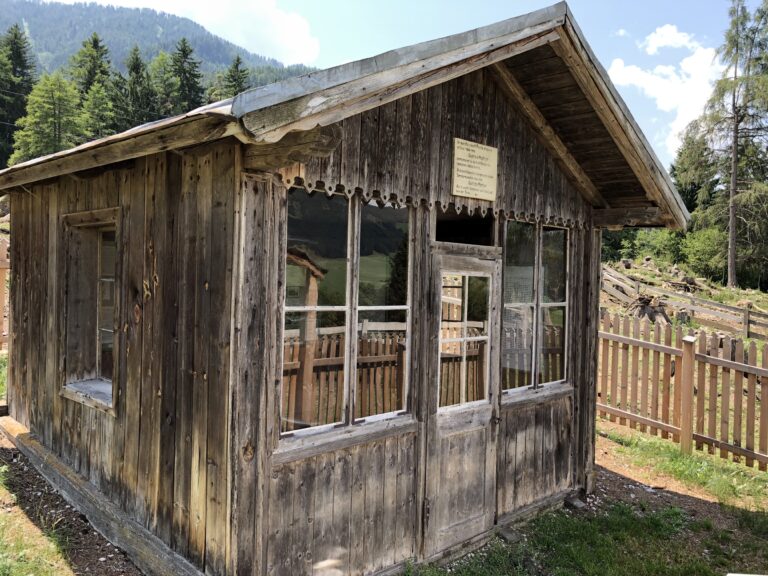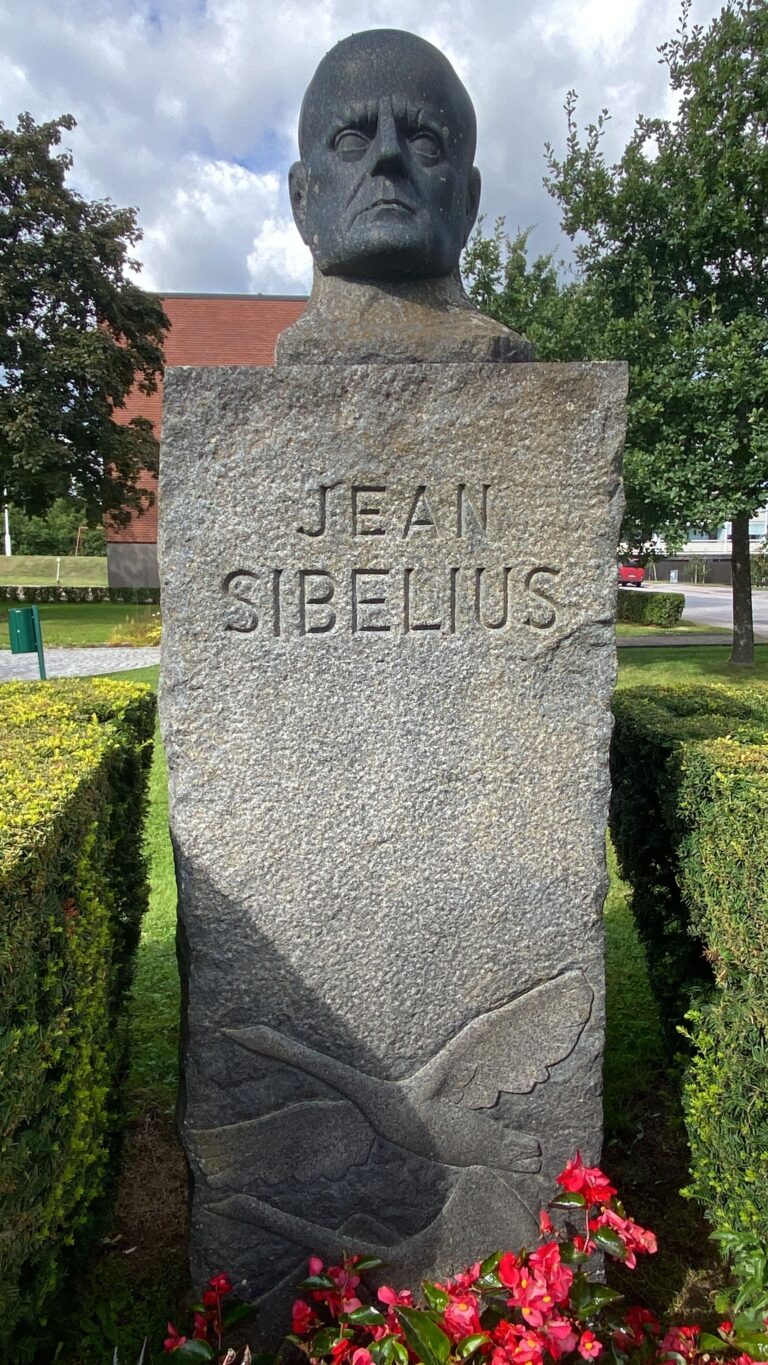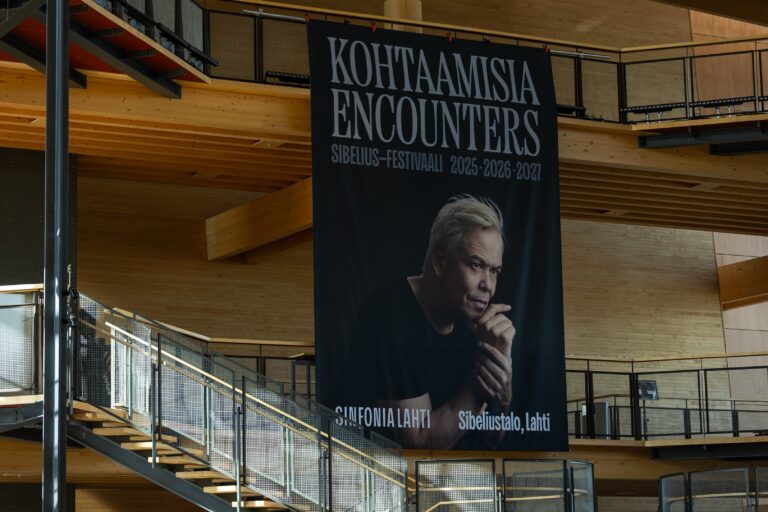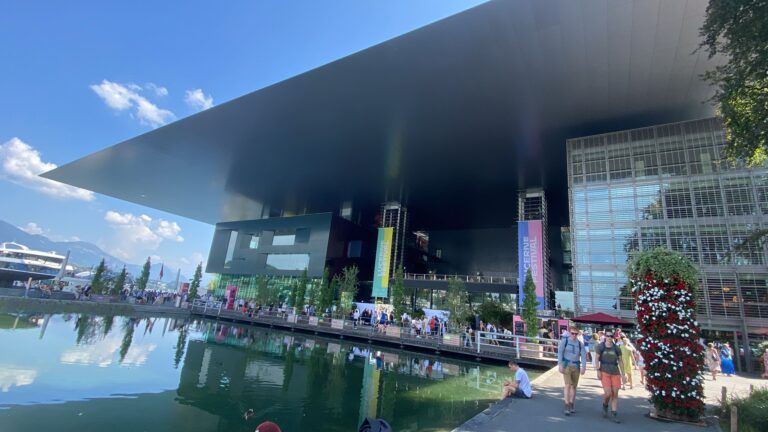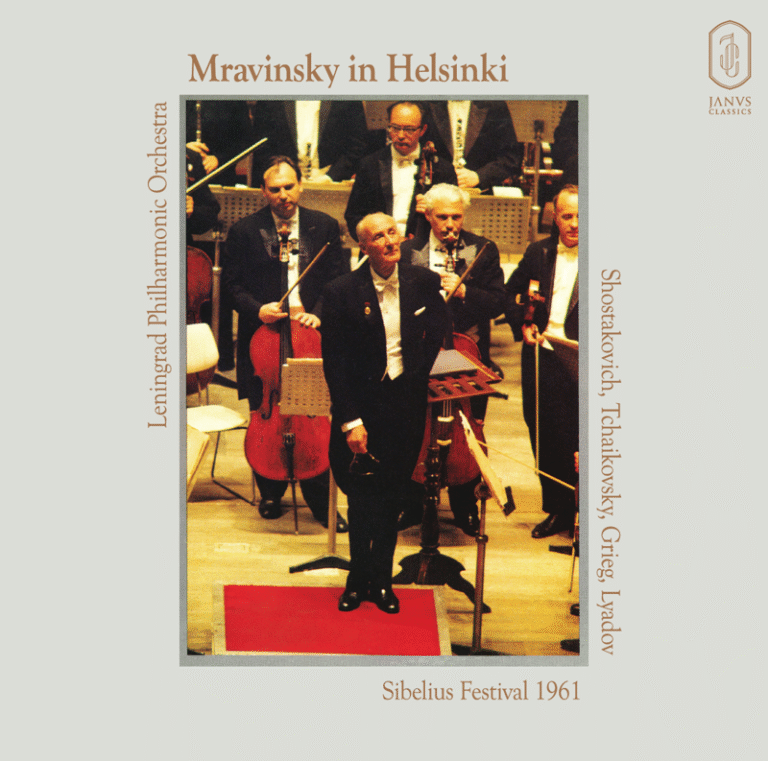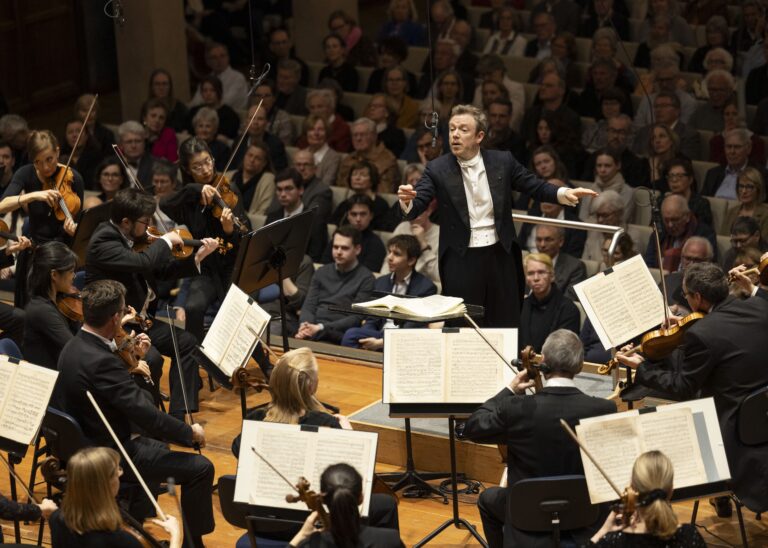Date and Venue: June 20, 2024, Het Concertgebouw, Amsterdam
Conductor: Manfred Honeck
Orchestra: Royal Concertgebouw Orchestra of Amsterdam
Program:
Anton BRUCKNER, Symphony No. 8 in C Minor
On October 2, 1920, the Concertgebouw Orchestra gave the Dutch premiere of Bruckner’s Eighth Symphony. One newspaper called the performance « splendid, » while another noted that « many spectators left the hall before the finale. » The time had not yet come for Bruckner. It was only in the 1950s that the Master of Saint Florian became a mainstay of the prestigious Amsterdam ensemble, with all its principal conductors making a point to include Bruckner in their repertoire. In this bicentennial year of the Austrian composer’s birth, each of his nine symphonies (though one might regret the absence of Symphonies 0 and 00) is entrusted to a different conductor. And for this first day of summer, Christian Thielemann—unfortunately unwell—was to shine in the Eighth. Manfred Honeck stepped in at the last minute. The Austrian conductor has already recorded two highly acclaimed interpretations of the Fourth and Ninth Symphonies with his Pittsburgh Orchestra.
The Eighth Symphony, in C minor, composed between 1884 and 1892, is Bruckner’s last major completed work and one of the most significant pieces in the symphonic repertoire. This masterpiece, often described as a « musical cathedral, » embodies the religious depth and emotional complexity of the composer. Tonight, Manfred Honeck offers a masterful interpretation of this superlative symphony, a sort of apotheosis of late 19th-century European symphonic art.
From the first notes, the full and warm sound characteristic of the RCO fills the hall. The symphony opens with a dramatic doubt, but quickly, sensuality permeates the work with lullaby-like reminiscences. Honeck chooses a broad tempo, allowing the oboe theme, which already heralds the first movement of the Ninth Symphony, to fully develop. The strings, exceptionally held from the beginning to the end of the concert, offer pianissimi of rare finesse, alternating between doubts and affirmations with stunning clarity.
The suspension of time in the horn solo, answered by the oboe, is masterful. Honeck knows how to stretch moments without heaviness, letting Bruckner’s questions resonate with an unprecedented clarity in finely exposed sound planes. He reveals the layering of themes, playing on contrasts, sunny and shaded slopes on this summer solstice day, cultivating a hedonistic sound made possible by his prodigious orchestra. But it’s never gratuitous: Honeck’s soft and expressive left hand offers a vision that is both biographical (Bruckner’s wavering faith) and historical (the darkening skies of Europe).
The end of the first movement is particularly striking: truly unprecedented, it is played like a heart gradually ceasing to beat until it stops. The silence and concentration of the audience are of rare intensity.
The second movement takes a different turn with a de-dramatized scherzo, containing nonetheless some elements of unease. Honeck suddenly slows the tempo, taking time to probe, sculpt, and examine the heart’s palpitations and intermittences. Then, a new theme appears: almost a waltz, with harp sounds like a celesta, followed by silence and a return to questioning, always with the same sense of sensual slowing. Something rarely heard so « Viennese » in this scherzo, far from the Mahlerian Ländlers of the Third Symphony. Honeck knows all that Bruckner owes to Schubert: it is a generous interpretation, heart on hand, intimate in its gigantism, giant in its intimacy, thus touching the universal.
The re-exposure of motif A proceeds in sound waves, in this more elegant and peaceful than sardonic scherzo. The orchestra stands out for the excellence of the brass, the trembling of the strings, and the use of rallentandos of great accuracy, which have a deep meaning perfectly integrated into the interpretation.
Before beginning the adagio, in D-flat major, Manfred Honeck waits for long seconds, as if, to paraphrase a famous jest, the silence preceding Bruckner was already Bruckner. The adagio vibrates subtly with the restrained emotion of Schubert’s Quintet in C, of which it is here the descendant, imposing a tender gravity and moments of pure emotion. Honeck knows how to make the orchestra breathe, letting the music’s evidence speak. He was the assistant of the late Claudio Abbado, whose influence is felt in this interpretation: attention to desks, in the service of music alone.
It is the time of twilight regrets, also, in this adagio as grave as comforting, tender, never pathetic, very noble and always humble. Honeck embodies this music with impressive height, digging into silence in a way that recalls both Abbado and Celibidache. The solo violin ending the movement is particularly audible, and Honeck maintains interest throughout this nearly half-hour movement, considered one of the most beautiful adagios in history. Moments of hypnotic transcendence punctuate this passage, making the Eighth a symphony of time, and over time. One must hear these pizzicati marking the seconds and revealing a human Bruckner, never noisy or too mystical.
As a master of time precisely, Honeck offers a humanistic, warm, humble, spiritual, and thoughtful synthesis of the work: everything is there! The end, Wagnerian (the tubas!) with accents from The Rhinegold, provides a key to understanding: like Alberich, Bruckner renounced love to forge another ring, that of music and art, sublimating the turmoils of the flesh: « you gave me mud and I made it gold, » alchemist of notes.
The last movement, often awaited as a triumphant climax or a « battle of demons, » never falls into the spectacle of a great cavalcade. Honeck, using a sustained tempo, makes it a continuation of the previous movement. Both chthonic, aquatic, and aerial, this movement represents an elemental symphony, dotted with some final twilight flares.
This ultimate jolt concentrates the effects; it is the moment of resolutions while sometimes still hearing echoes of The Rhinegold. The coda arrives, meeting Bruckner’s expectations, with an impressive movement of grand calm reminiscent of Schubert’s Unfinished Symphony. It is the melancholic but serene acceptance of life as it is, doors wide open to eternity. Immediate and well-deserved standing ovation!
During this symphonic journey, the pinnacle of 19th-century European symphony, we traverse from abysses to peaks, from Herculean wounds to Chironian healings, in a labyrinthine path whose cathartic contours Honeck draws. This portrait of a humble man and a Europe that can tip and capsize at any moment recalls Stefan Zweig. Carefree Vienna is about to be upheaved and psychoanalyzed. The regenerative and gently resigned coda nevertheless allows the lights of hope to triumph.

